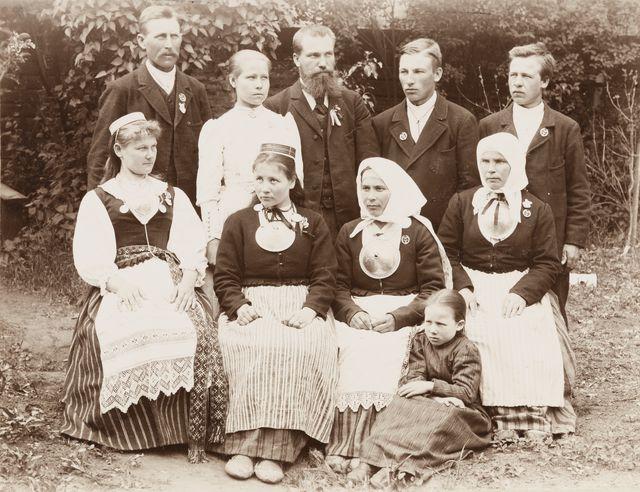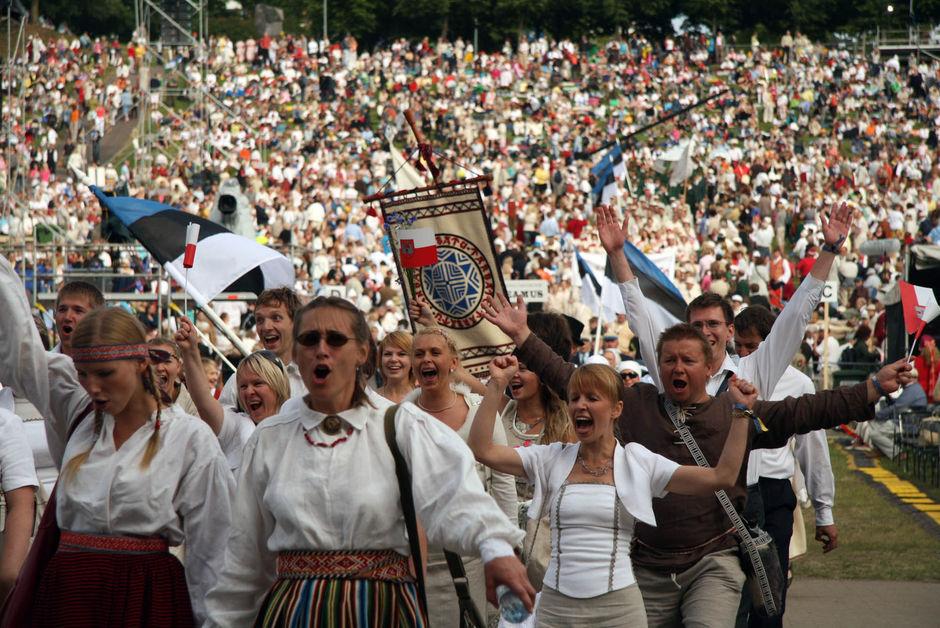Song Festivals
Singing plays an important role in Estonian culture. The country has a long tradition of organising song festivals. The first national Song Festival was organised in Tartu in 1869 to commemorate the 50th anniversary of the abolition of serfdom. This was a visible expression of the awakening of Estonian national sentiment. Even in the present day, the name of the poet Lydia Koidula (1843–1886), the voice of Estonia’s national awakening known for her lamenting and jubilant hymns whose songs are still sung today, is associated with the Song Festival.
Subsequently moved to Tallinn, the Song Festival has ever since the beginning reflected the Estonians’ strong national self-esteem and pursuit of independence. During difficult times, the festival has brought tens of thousands of people together to sing patriotic choral songs. In 1988, a total of 300,000 people gathered on the Tallinn Song Festival Grounds to sing for the restoration of Estonia’s independence. Consequently, the series of events that led to the restoration of Estonia’s independence is called the Singing Revolution. The Song Festival is organised once in four years. The 150th anniversary year in 2019 saw thousands of groups performing at the Song and Dance Festival.

